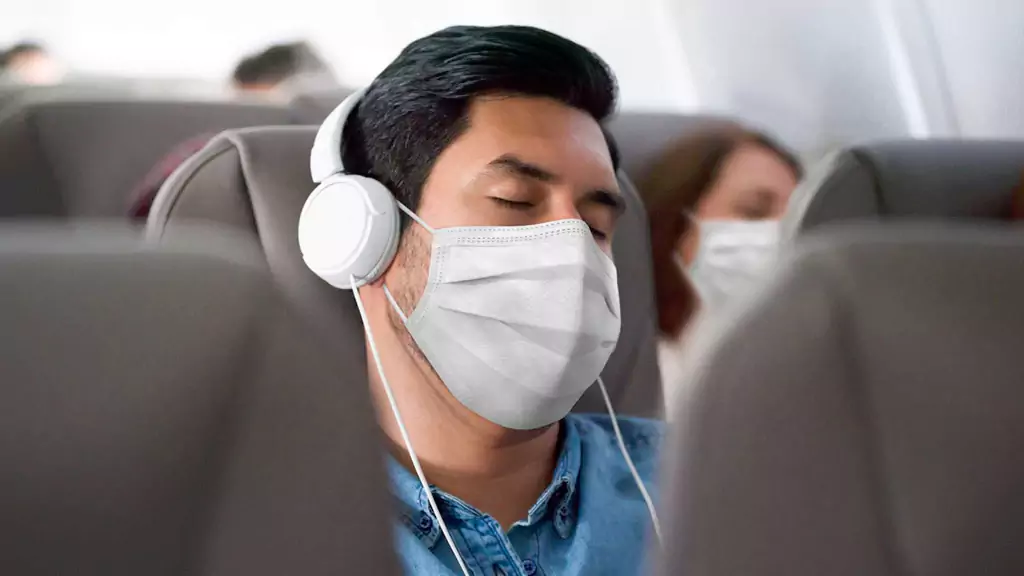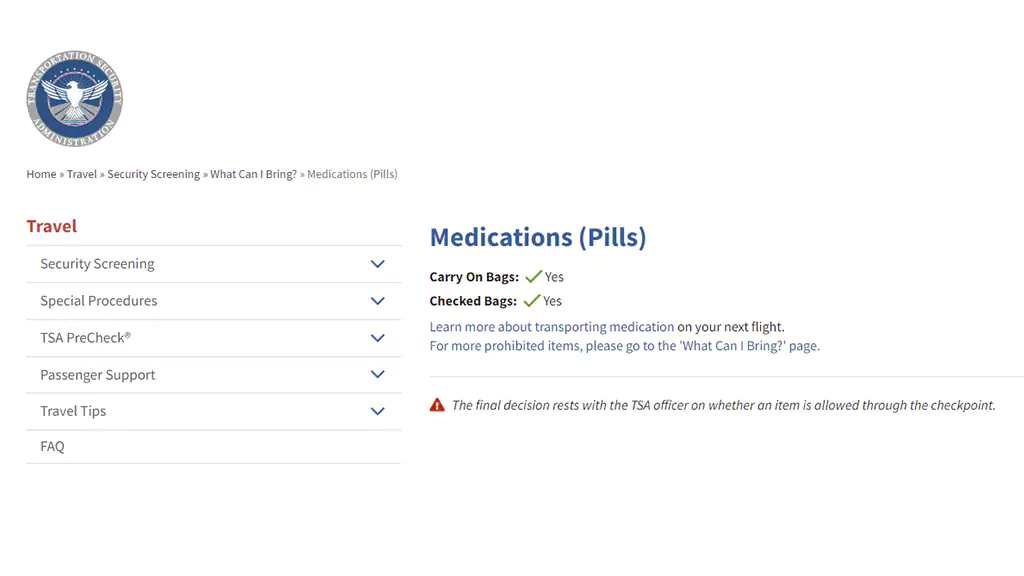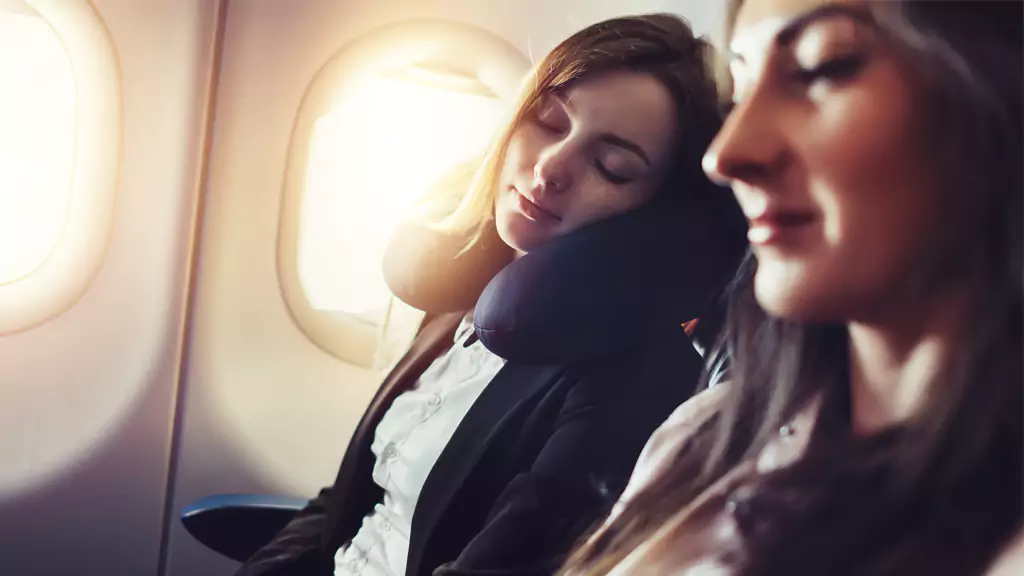Can you bring melatonin on a plane? A curious traveler discovers the benefits of taking melatonin when flying. The carefree nature of traveling can still have its dangers.
Restless sleep can have you accidentally tangled in an armrest, curled up in the back of the plane, or slumped against another passenger.
Melatonin is a type of hormone that can help regulate your sleep, so taking some before you go to bed on the plane could help you sleep soundly during the flight.
Can You Bring Melatonin on a Plane?
Yes, you can bring melatonin on a plane. Melatonin is a natural hormone that your body produces to regulate sleep. It is available over the counter and is considered safe for most people.
If you are planning to fly, it is a good idea to bring some melatonin with you. Depending on the time zone change, you may want to take it before or after your flight.
If you are flying east, take it before your flight. If you are flying west, take it after your flight.
Many people find that taking melatonin helps them adjust to the time change and sleep better on planes. It is a good idea to talk to your doctor if you are taking other medications or have any medical conditions.
Your doctor can help you decide if taking melatonin is right for you.
When carried in carry-on luggage, melatonin must be in the original manufacturer’s container with the full prescription label attached.
It cannot exceed a total of 3 oz (or approximately 90 mL) per bottle, and it must be in a clear, plastic, quart-sized bag. (TSA.gov)
If you are bringing melatonin in your checked luggage, it must be in its original container and cannot exceed a total of 10 mg per person. (TSA.gov)
Always check with the TSA or your airline to make sure you are aware of any specific regulations that may apply to you.
TSA Melatonin Rules
The Transportation Security Administration (TSA) has rules in place regarding the possession of melatonin. These rules are in place to ensure that passengers are able to travel safely and securely.
Passengers are allowed to bring a small amount of melatonin with them on board an aircraft. This small amount must be placed in a clear, quart-size, zip-top bag.
Passengers are allowed to bring larger quantities of melatonin in their checked luggage. It is critical that the traveler notify the airline ahead of time of his or her intention to ensure that it can be carried on board without incident.
The TSA does not allow passengers to bring any type of liquid medication onto an aircraft in their carry-on luggage.
Melatonin is a hormone that is produced by the pineal gland. It is often used to help regulate the body’s sleep-wake cycle. Melatonin can be purchased over the counter and does not require a prescription.
The TSA’s rules regarding melatonin are in place to ensure the safety of all passengers on board an aircraft.
These rules are in place because the TSA understands that there may be a medical need for some individuals to possess melatonin while on a flight,
but that it is also important to ensure that this medication does not pose a threat to safety or threaten the security of passengers on board an aircraft.
Is Melatonin Safe for Travelers?
Ravellers are often concerned about the effects of their journeys on their health. One of the most common concerns is jet lag, the disruption in mental and physical rhythms that results from rapidly crossing time zones.
A special concern for long-distance travelers is insomnia during flights or train trips, when many people have trouble sleeping because of the noise and motion.
Melatonin is a hormone that occurs naturally in the body and helps to regulate sleep-wake cycles.
Some people take melatonin supplements to help them sleep when they are traveling. But is it safe to take melatonin for jet lag or insomnia?
There is no definitive answer to this question because there has not been enough research on the effects of melatonin for people who are traveling.
Many studies have focused on how melatonin affects healthy people, but very few have looked at its effects on travelers.
The U.S. National Library of Medicine states that long-term use or high doses of melatonin may cause serious side effects.
These effects include a decrease in the number of white blood cells, an increased tendency to bleeding and stroke, depression, disorientation upon awakening from sleep, daytime fatigue or insomnia, menstrual irregularities, or infertility.
In addition, because people will vary widely in the amount of melatonin they need to overcome jet lag or sleeplessness, a doctor must be consulted before taking it.
There is also some concern that, in high doses, melatonin may interfere with the body’s production of progesterone.
Progesterone is important for pregnancy and menstrual cycles, so people who are pregnant or trying to become pregnant should not take any kind of supplemental melatonin.
Some studies have found that melatonin can help people cope with jet lag when they are flying across five or fewer time zones. However, there is no evidence that it helps prevent or treat jet lag in people who cross more than six time zones.
A study published in the American Journal of Clinical Nutrition in 2009 found that taking melatonin for five days before a trip was not an effective way to prevent jet lag.
Melatonin is considered safe when taken in the recommended dosages of 1 to 5 mg daily. However, some people who take higher doses may experience side effects like headaches and nausea.
It is also important to note that some types of drugs may interact with melatonin. People should check with their doctors before starting any new medications or supplements, including both prescription and over-the-counter medications.
With so many unknowns about the effects of taking melatonin for long periods, it is best to use this product only on a short-term basis under medical supervision.
This is especially important for people who are pregnant, trying to become pregnant, or taking other medications or supplements. So, is melatonin safe for travelers? The answer is a qualified “maybe.”
If you are traveling and experiencing difficulty sleeping, you may want to try taking a low dose of melatonin before bed.
But be sure to talk with your doctor before doing so, especially if you are pregnant or taking other medications or supplements.
Using Melatonin to Sleep on a Flight
I am a frequent flyer. I used to struggle with sleeping on planes, but there are steps you can take that make it much easier. Today, I’m going to explain how melatonin can be used to help you sleep on planes.
The goal of this article is to teach you about the different kinds of melatonin and which form is best to take on planes.
What is melatonin?
Melatonin is a hormone made by your body that regulates your sleep.
It helps you fall asleep, stay asleep, and wake up feeling refreshed in the morning; it’s also safe for nearly everyone to take daily because your body will stop producing it after several weeks.
Take Melatonin to Sleep on a Plane
There are three types of melatonin: synthetic, plant-based, and animal-based. I recommend taking plant-based or synthetic melatonin if you’re looking to sleep on a plane.
The reason I recommend these two forms is that they are more stable than animal-based melatonin and can be taken without food.
Animal-based melatonin is a natural form of the hormone, but it’s not as stable as the other two types. It also needs to be taken with food.
Plant-based and synthetic melatonin are man-made forms of the hormone, and they are more stable than animal-based melatonin. They do not need to be taken with food.
If you’re looking for an over-the-counter sleep remedy, I recommend taking synthetic or plant-based melatonin before your flight.
It might take a little bit of trial and error to find the dose that works best for you, but it’s worth it to fall asleep on your next flight.
What is the best form of melatonin to take on planes?
Plant-based melatonin has worked best for me when I’m looking to fall asleep on a plane. Synthetic melatonin can also be effective, but it’s more expensive than plant-based melatonin and harder to find in stores.
How to Use Melatonin for Travel
If you’re planning to travel, taking melatonin can help adjust your body clock and make it easier to fall asleep at night. Melatonin is a hormone that’s produced by the pineal gland in the brain. It helps regulate sleep-wake cycles.
You can buy melatonin over the counter without a prescription. You can buy it in pill, capsule, or liquid form.
Some people also use melatonin to treat other conditions, such as insomnia and jet lag.
If you want to try melatonin for travel, talk with your healthcare provider first. He/she may be able to prescribe a more effective dose of the supplement than what’s available over the counter.
How to Take It
If you decide to take melatonin before your trip, it’s best to start taking it several days beforehand. Don’t take too much of the hormone, though. Studies suggest that more than 3 milligrams can disrupt your body clock.
If you’re using a melatonin supplement for the first time, start with a low dose and increase it gradually if needed.
Most people take melatonin orally in pill or capsule form. It can also be given as an injection. If you’re using liquid melatonin, measure the dose with a dropper or syringe.
You can also buy melatonin eye drops for use when traveling by plane. It’s not clear if they work any better than pills or capsules.
How Long Will It Take?
The effects of melatonin are usually felt within 15 minutes to an hour after you take it. If you’re using it to treat jet lag, continue taking it for a few days after you arrive at your destination.
If you’re using melatonin to help with sleep, take it before bedtime. You may need to continue taking it for a week or two until your body clock adjusts. After that, you can usually stop taking it.
When to Take It?
You can take melatonin with food or on an empty stomach. If you’re using it for jet lag, try taking it 15 minutes before the desired bedtime at your destination. For sleep problems, just take it 30 minutes before your normal bedtime.
If you’re taking it for insomnia, take a dose at bedtime and one about 2 hours later.
Remember that melatonin is an over-the-counter supplement. It may cause side effects such as dizziness, drowsiness, or nausea.
These side effects are usually mild and temporary. Melatonin can also interfere with or reduce the effectiveness of birth control pills.
If you’re traveling overseas, check the rules of the country where you’re going. Some countries have strict limits on melatonin sales and quantities travelers can take into the country.
Summary
If you’re planning to travel, taking melatonin can help adjust your body clock and make it easier to fall asleep at night. Melatonin is available over the counter without a prescription.
It can be given as an injection or taken orally in pill, capsule, or liquid form. Most people take melatonin before bedtime to help with sleep problems.
Side effects of melatonin are usually mild and temporary. It can also interfere with or reduce the effectiveness of birth control pills.
Check with the country you’re traveling to before taking melatonin, as some have strict limits on sales and quantities of the supplement that are allowed into the country.
Read Also:


